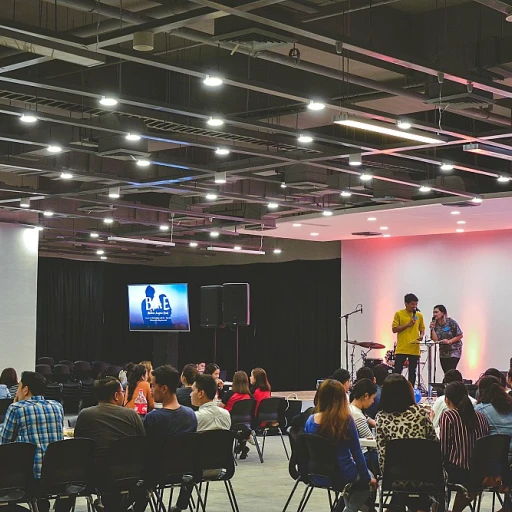
Understanding Employee Recognition Trips
Decoding the Concept of Employee Recognition Trips
Employee recognition trips are a fascinating aspect of modern workplace culture, designed to acknowledge and reward top performers within a company. These trips are more than just a getaway; they are a strategic tool used by organizations to boost employee morale and enhance engagement. By offering travel incentives, companies aim to make employees feel valued and appreciated, fostering a sense of belonging and loyalty.
Recognition programs, including incentive trips, are crafted to celebrate achievements and motivate team members to maintain high performance. These programs are not one-size-fits-all; they are tailored to meet the specific needs and preferences of the employees. This customization ensures that the rewards resonate with the recipients, maximizing their impact.
Incentive travel is a powerful motivator, often more effective than traditional rewards like gift cards. The experience of traveling, exploring new places, and bonding with colleagues can leave a lasting impression, reinforcing the positive association with the company. This approach not only enhances employee engagement but also contributes to a more cohesive and motivated team.
For those interested in exploring creative recognition methods, this article offers insights into unique and impactful ways to appreciate employees. As we delve deeper into the benefits of recognition trips, it's essential to consider how these programs can be tailored for maximum impact and the challenges that may arise in their organization.
The Impact on Employee Morale
The Ripple Effect of Recognition Trips on Employee Spirits
Employee recognition trips can make a significant difference in how employees, both individually and as a team, perceive their value within the company. These travel programs, designed as rewards for excellent performance and engagement, have the potential to strengthen the overall morale among team members. By providing unique travel incentives, companies leverage positive experiences that enhance employees' feelings of appreciation. When employees feel valued and rewarded through such incentive trips, it directly translates into heightened morale. As recognition programs celebrate achievements, they provide a sense of accomplishment and belonging. This sense of belonging is further augmented when reward trips offer shared experiences with colleagues, nurturing a strengthened bond within the team. Engaging in activities outside of the usual work environment encourages collaboration and interaction on a more personal level. Moreover, these trips as part of company recognition programs serve as essential morale boosters in often demanding work environments. Employees who receive travel rewards for top-notch performance tend to have increased satisfaction with their roles. This crucial factor often translates into decreased turnover rates and boosted long-term loyalty, reinforcing the company's positive culture. For further understanding of the importance of recognition in workplace settings, you might explore the difference between awards and rewards through our detailed insights on unlocking the benefits. The nuanced distinction is essential for designing incentive programs that align with company values and employee expectations.Boosting Productivity Through Recognition
Transforming Workplace Dynamics through Carefully Planned Trips
The correlation between recognition and productivity is hard to ignore. Implementing a well-structured employee recognition trip can significantly uplift a company's overall performance. When employees feel appreciated for their efforts, their engagement levels surge, leading to enhanced productivity. Recognition programs, including incentive trips, play an instrumental role in making employees feel valued and motivated to contribute more towards their team's success. By offering travel incentives, companies can foster a culture of appreciation, where employees are recognized for their hard work with rewards that matter. Incentive trips often serve as an excellent opportunity for employees to unwind, collaborate outside the usual work environment, and reflect on their achievements. This positive reinforcement not only propels their current performance but sets the tone for future endeavors. Moreover, these programs empower team members to collaborate more effectively, as they enhance interpersonal relationships and ensure a cohesive team dynamic. Employees who partake in these rewards recognition activities tend to develop a stronger sense of loyalty towards the company, making retention easier and turnover rates lower. In summary, employee recognition trips can significantly enhance both individual and collective productivity at the workplace. By integrating such travel programs into their recognition programs, companies can ensure that their workforce remains motivated and their performance is consistently on an upward trajectory. For more insights into transforming employee dynamics and experiences, consider exploring enhancing employee experience through strategic consulting.Tailoring Trips for Maximum Impact
Creating Memorable Experiences with Tailored Recognition Trips
Tailoring recognition trips to fit the unique preferences and interests of your team can greatly enhance their impact. The goal is to make employees feel truly appreciated and valued, which requires careful planning and consideration. Here’s how to design an unforgettable reward experience:- Understand Your Team's Interests: Engage in conversations with your employees to understand what kind of experiences they value. Tailored trips should reflect their hobbies or passions, such as adventure travel, relaxation retreats, or cultural explorations.
- Align with Company Values: Your travel programs should also resonate with your company’s mission and values. This alignment not only boosts morale but also strengthens the overall culture and connection within your team.
- Offer Flexibility and Choice: Every employee is different. Providing options for recognition trips can cater to diverse preferences. This flexibility allows employees to choose experiences that will be most meaningful to them, thereby enhancing engagement and appreciation.
- Combine with Other Rewards: While trips are a fantastic reward, consider pairing them with other recognition programs like gift cards or performance bonuses. Such combinations can enhance the perceived value of your incentive and appreciation programs.
- Ensure Access for Top Performers: While it's crucial for trips to be extraordinary, they should also remain attainable for top performers across various departments. Creating a structured employee incentive ensures that all deserving team members have an opportunity to participate.
Challenges in Organizing Recognition Trips
Considerations for Organizing Employee Recognition Trips
Organizing a successful employee recognition trip can be a daunting task as it requires careful planning and consideration of various factors to ensure that the experience is rewarding and memorable for everyone involved. Here are some key considerations to help overcome the challenges:- Budget Management: It’s essential to plan the trip within the company's financial constraints while still offering an incentive that employees appreciate. Cost-effective but engaging activities can make travels special without straining the budget.
- Customizing the Experience: Tailoring trips to suit the preferences and interests of team members increases their sense of appreciation. This approach should involve understanding employee preferences and curating experiences that resonate with diverse tastes.
- Time Management: Scheduling the recognition trip to cause minimal disruption to work schedules ensures good attendance while balancing company operations. Selecting a time that doesn’t interfere with peak work seasons can accentuate employee enjoyment and minimize stress.
- Communication and Logistics: Clear communication about the trip’s details is crucial. Employees should have a full understanding of the agenda, objectives, and logistical complexities to avoid miscommunication and ensure everyone is on the same page.
- Measuring Outcomes: Before planning, it's beneficial to define success metrics. These can include employee satisfaction, engagement, and retention rates post-trip. Metrics help determine if the travel incentive achieved its intended goals.
Measuring the Success of Recognition Trips
Evaluating the Effectiveness of Recognition Trips
Once an employee recognition trip or incentive travel program has been conducted, it is crucial for companies to measure its success to understand its impact on employee morale and productivity. This part of the process helps the organization determine whether the travel incentives and rewards recognition initiatives have delivered the expected outcomes and if team members feel valued and motivated.
To assess the results, companies can employ several strategies:
- Employee Feedback: Gathering feedback from employees and team members is a direct way to gauge how the recognition trip was perceived. Surveys and open-ended questionnaires can help collect honest opinions on the experience, the satisfaction with the rewards program, and any perceived impact on job performance and engagement.
- Performance Metrics: Comparing work performance metrics before and after the trip can offer insights into any improvements in productivity and efficiency among employees. It provides a quantitative analysis of the trip's effectiveness.
- Employee Engagement Levels: Monitoring changes in employee engagement is essential. Increased participation in company programs and higher morale levels among employees could indicate a successful recognition trip.
- Retention Rates: A well-executed recognition program with appropriate travel incentives can enhance loyalty among high-potential employees. Observing any positive changes in retention rates post-trip is another indicator of success.
- Comparison with Other Incentives: Evaluate how the recognition trip fared in comparison to other forms of rewards, such as gift cards or bonuses. Understanding what type of incentive yields the most satisfaction and performance enhancement is valuable for refining future recognition programs.
By methodically measuring these aspects, a company can gain a better understanding of the trip’s impact and plan future recognition initiatives with greater precision, ensuring employees continue to feel appreciated and motivated.













